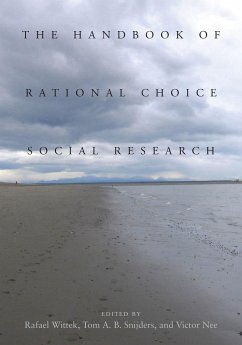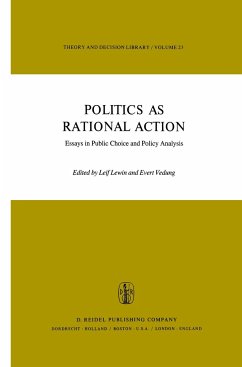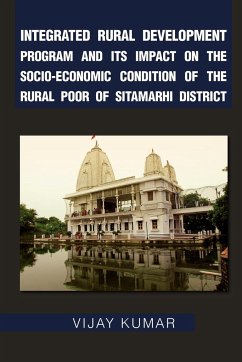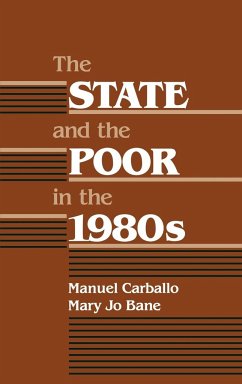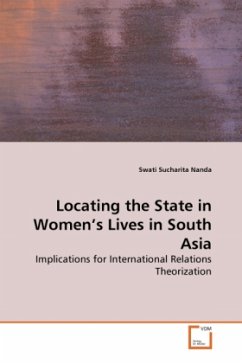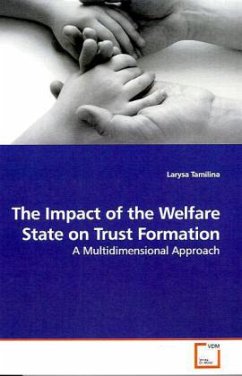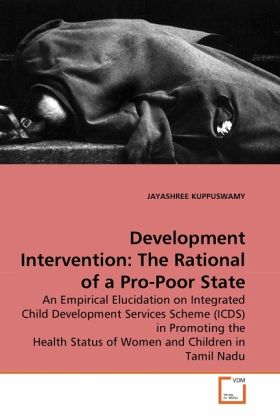
Development Intervention: The Rational of a Pro-Poor State
An Empirical Elucidation on Integrated Child Development Services Scheme (ICDS) in Promoting the Health Status of Women and Children in Tamil Nadu
Versandkostenfrei!
Versandfertig in 6-10 Tagen
39,99 €
inkl. MwSt.

PAYBACK Punkte
20 °P sammeln!
The present work is an empirical off-shoot of a theoritical quest towards understanding a Pro-Poor State'. In tune with the said proposition, the dissertation explores the implementation of a major health intervention in Tamil Nadu namely, the ICDS. The study has five chapters. The introductory chapter begins with a briefing on importance of health status of women and children, the basic indicators that connote their anthropometric well- being alongside a detailed musing on the role played by the Government in addressing the issue of nutrition and health care. Cueing from state policy rational...
The present work is an empirical off-shoot of a theoritical quest towards understanding a Pro-Poor State'. In tune with the said proposition, the dissertation explores the implementation of a major health intervention in Tamil Nadu namely, the ICDS. The study has five chapters. The introductory chapter begins with a briefing on importance of health status of women and children, the basic indicators that connote their anthropometric well- being alongside a detailed musing on the role played by the Government in addressing the issue of nutrition and health care. Cueing from state policy rationale, the following two chapters pin down upon the operation of ICDS in the Tamil Nadu with specific reference to its functioning in Chennai city. Concomitant to projections from the data which centralize the efforts of the State, the empirical and concluding chapters underpin the critical issues that underlie the touted success of state intervention; evidently purporting the need for re-looking the rationale of welfare states championing the cause of downtrodden



